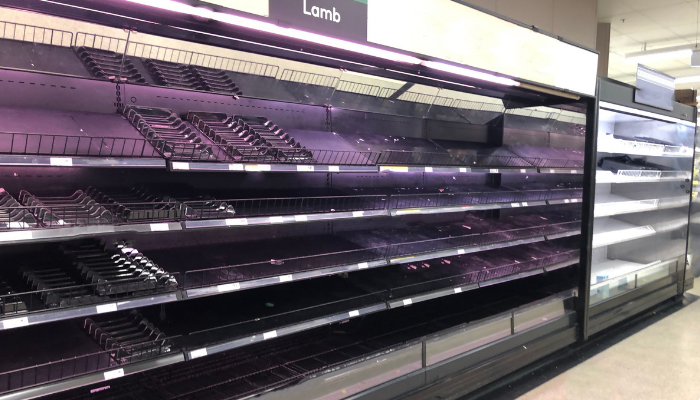The COVID-19 pandemic has taught us many things. Some positive aspects include perseverance and patience. However other aspects have worn us down and proved that intolerance and greed are some of the first traits to rear their heads. From panic buying to frustration in workplaces, it’s easy to place the blame on others first and foremost.
Next time you think about stockpiling products from the supermarket, or blame others of hoarding products, think about the process of how the products got onto the shelves. Perhaps it’s not all about hoarding toilet paper. We are living in unprecedented times and many of the links in the supply chain are broken or stretched to capacity. And quite often the factors impacting the supply chain are out of the control of the frontline people working in the supermarkets.
Staffing Restrictions
Food producers, especially those in meat and dairy, have been hit hardest with the COVID-19 staffing restrictions. In one instance, a South Australian abattoir had 140 workers at home with COVID-19, unable to work. With staffing losses like this, it’s no wonder the supermarket shelves are empty. Working with fresh produce or livestock adds another layer of complexity to the production process and the supply chain.
Australian dairy farmers are doing it tough. Grant Crothers, president of the Australian Dairy Products Federation, said up to 40% of employees who work in the dairy industry were away from work because they tested positive to COVID-19 or were in close contact with someone who tested positive. “We’ve obviously got an extremely time-sensitive raw material that relies on an excellent supply chain to get it to the processing point,” he said. “You can leave a cow in a paddock, you can leave grain in a silo, but you can’t leave milk in a vat on a farm.”
Hope On The Horizon
While those working in meat production, trucking and logistics, through to the shop floor have been hit hard, struggling to keep food on our plates, there is some hope on the horizon. In early January, many state governments eased restrictions for employees working in the food sector. In most states, employees in the food sector, including supermarkets, are now exempt from close contact isolation provided they are asymptomatic and undergo daily rapid antigen tests for five days, providing a negative result before returning to the workplace.
While the new measures are an improvement, it is still a struggle for producers and businesses to continue on skeleton staffing. While you might not be able to get lamb for your Sunday barbie, take a moment to think of those working in food production and the difficulties they are facing.
Do you have a food production business? We’d love to hear from you. How are you managing staffing throughout the COVID-19 pandemic?


